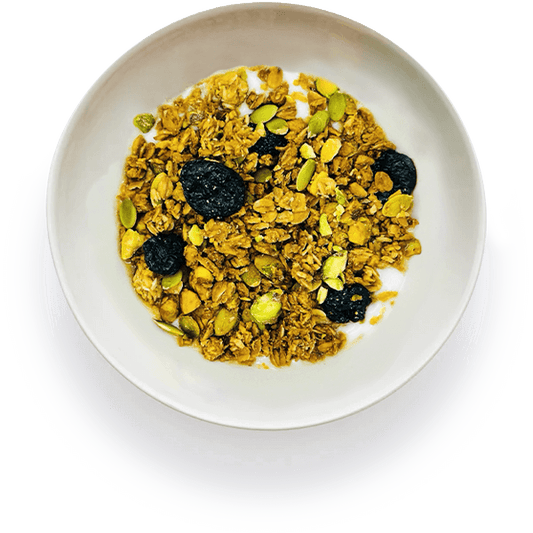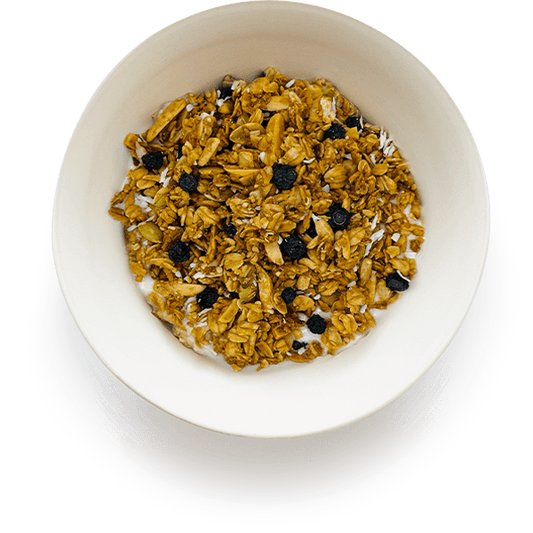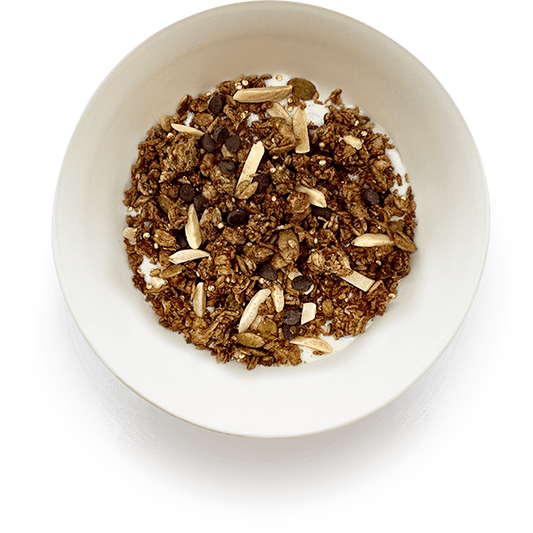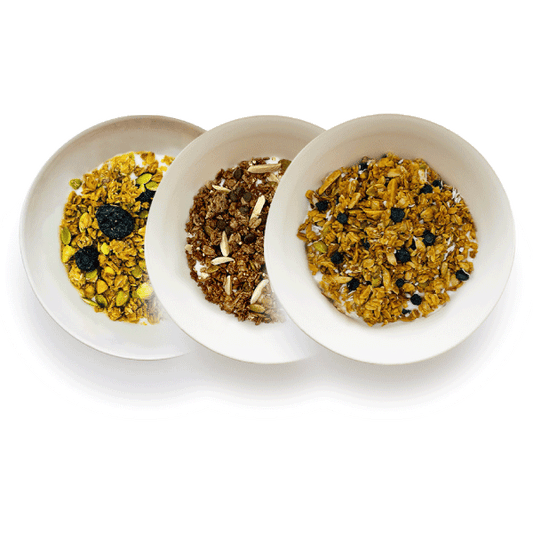Sustainable Eating: Why Plant-Based Matters
By FireRoad
Overview
The blog discusses the rise of sustainable eating, emphasizing the importance of plant-based diets for both personal health and the environment. It outlines the health benefits of plant-based nutrition, such as weight management and reduced disease risk, while debunking the myth of inadequate protein intake. The article highlights the flavorful variety of plant-based meals and encourages a gradual transition to this lifestyle. By adopting plant-based eating, individuals can contribute to a healthier planet and foster mindfulness in their food choices.
In recent years, the movement towards sustainable eating has gained significant traction. As more people become aware of the environmental impacts of their dietary choices, the concept of plant-based nutrition has emerged as not only a lifestyle transition but a necessity for global health. With a focus on fresh ingredients and the myriad of flavors they bring, plant-based eating offers a world of nutritious possibilities. Discover why embracing a plant-based lifestyle is essential for both your health and the planet.
The Rise of Sustainable Eating
The conversation around food sustainability continues to evolve, with more individuals acknowledging the importance of their food choices. Sustainable eating promotes a diet that is not only nutritious but also environmentally friendly. This means opting for foods that are grown organically and focus on plant-based sources which require fewer resources than their animal counterparts.
One standout option in this realm is Coconut Red Curry Tofu, a dish that encapsulates the best of both worlds: rich flavor and essential nutrients.
The Benefits of Plant-Based Diets
Health Advantages
Adopting a plant-based diet can have numerous health benefits. Plant foods are often high in vitamins, minerals, antioxidants, and other essential nutrients that the body craves. They also generally contain fewer calories and unhealthy fats compared to animal products. Here are some of the prominent health advantages:
- Weight Management: Studies show that individuals who consume a plant-based diet tend to have lower body mass indexes (BMIs).
- Reduced Risk of Chronic Diseases: A diet rich in plants can reduce the risk of heart disease, diabetes, and several types of cancer.
- Enhanced Digestion: Plant-based foods are typically high in dietary fiber, which promotes healthy digestion.
- Better Nutritional Intake: With a focus on whole foods, you’ll be consuming more essential nutrients needed for overall health.
A Source of Protein
One common misconception about plant-based diets is the fear of inadequate protein intake. In reality, many plant foods are rich sources of protein. Foods like legumes, tofu, seitan, and tempeh are excellent contributors. For example, Coconut Red Curry Tofu not only packs a punch in flavor but also serves as a delicious source of protein, helping meet daily fitness requirements.
Flavor Frenzy: Exciting Options Await!
If you think plant-based eating means sacrificing flavor, think again. The world of plant-based cuisine is brimming with excitement and variety. Here are just a few examples of delicious options that highlight how colorful and tasty a plant-based diet can be:
- Delicious Curries: From Coconut Red Curry Tofu to chickpea curry, spices bring life to plant ingredients.
- Flavor-Packed Salads: Combining fresh veggies with dressings made from nuts or avocado adds richness.
- Satisfying Smoothies: A blend of fruits and leafy greens packs nutrients and can be enjoyed at any time of the day.
- Hearty Wraps and Sandwiches: Fill wraps or whole grain bread with hummus, veggies, and protein sources for a filling meal.
Environmental Impact
The act of choosing plant-based foods also echoes loudly in the realm of sustainability. Animal agriculture is one of the primary contributors to greenhouse gas emissions, deforestation, and water depletion. By incorporating more plant-based meals into our diets, we reduce our reliance on these detrimental practices.
By adopting a plant-based diet, not only do individuals support their health, but they also contribute to a healthier planet for future generations. The collective shift towards plant-forward eating aids in decreasing fossil fuel consumption and conserves freshwater resources.
Nurturing Our Bodies with Nutrients
Each plant food comes packed with unique health benefits. Vegetables, grains, legumes, nuts, and seeds each hold specific nutrients essential for a well-rounded diet. Here’s a brief overview of some nutrient-rich options:
- Leafy Greens: Spinach and kale are rich in iron and vitamins A, C, and K.
- Nuts and Seeds: Chia seeds and walnuts provide healthy fats and omega-3 fatty acids.
- Whole Grains: Quinoa, brown rice, and oats offer fiber, B vitamins, and plant-based protein.
- Legumes: Beans and lentils are excellent sources of protein, fiber, and iron.
A Culinary Adventure
If you’re new to the world of plant-based cooking, don’t worry! Making a transition doesn’t mean you have to become a gourmet chef overnight. Start small by incorporating one or two plant-based meals into your week, gradually increasing as you discover delicious flavors and recipes that excite your palate.
The versatility of ingredients like Coconut Red Curry Tofu demonstrates just how flavorsome and satisfying these meals can be. Serve it over rice or quinoa to create a complete and nutritious meal that checks all the boxes for flavor, protein, and nutrients.
Bridging the Gap: Plant-Based as a Lifestyle
Living sustainably is not just about what we eat; it’s about fostering a holistic approach to life. Sustainable eating encourages mindfulness surrounding our food choices. Purchase locally sourced products when possible, minimize food waste, and get to know the origins of your food.
Engaging in community gardens, farmers' markets, and workshops can connect you to like-minded individuals and further enrich your plant-based experience. This community engagement not only fosters meaningful connections but continues to inspire creativity in the kitchen.
Mindful Eating: Nourish Your Body and Soul
Sustainable eating goes beyond personal health—it's about cultivating a relationship with food. Mindful eating practices encourage individuals to savor each bite, appreciating flavors and textures while promoting better digestion and satisfaction. This transition can help foster a deeper appreciation for the nutrients and energy that whole foods provide.
By consciously choosing more plant-based meals, you’re not just improving your own health; you’re partaking in a global shift towards wellness. From Coconut Red Curry Tofu to lentil stew, embracing plant-based cooking opens doors to a fantastic culinary journey filled with flavor and sustainability.
Join the Plant-Based Revolution
As awareness around the benefits of sustainable eating grows, it becomes easier to integrate plant-based options into lifestyles. More restaurants and brands are embracing this ethos, allowing for a greater ease in making these choices.
So why not join the plant-based revolution? Whether you’re a seasoned vegetarian or someone merely curious about this lifestyle, taking mindful steps toward a more sustainable diet can transform your health and well-being. Explore exciting flavors, reap the nutritional rewards, and engage in a practice that positively impacts the environment.
Ultimately, transforming your eating habits into a sustainable lifestyle isn’t just about the food on your plate; it’s about fostering a sustainable future for generations to come. So, let your culinary adventures begin, and embrace the myriad benefits of plant-based eating!
Linked Product

Coconut Red Curry Tofu
Coconut Red Curry Tofu offers a nutritious, plant-based meal option with a balance of high protein and low net carbs, making it suitable for those focused on fitness and health. Its blend of coconut milk, peanut butter, and vegetables provides a flavorful and satisfying dish that aligns with sustainable eating practices. Each container contains two servings, making it convenient for sharing or meal prep.
View Product










